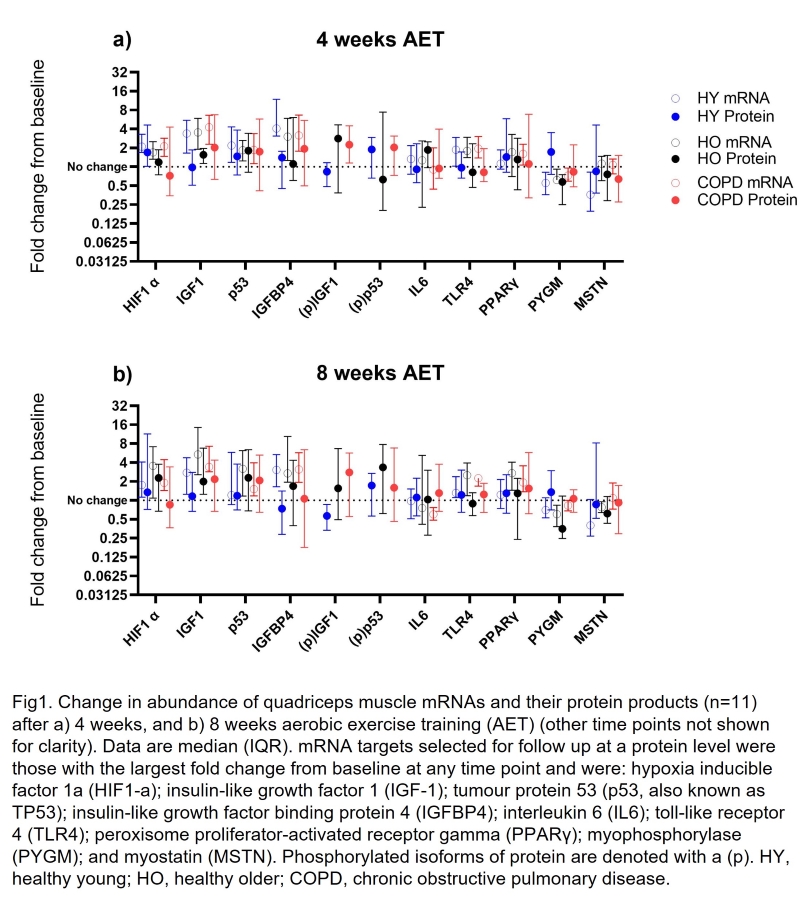Abstract
Eight weeks AET reduced respiratory exchange ratio (RER) during steady-state submaximal exercise in healthy older (HO), healthy young (HY) and COPD volunteers, signifying a shift towards lipid oxidation and prompted mRNA expression changes in muscle of similar magnitude in all groups (Latimer et al, ERJ, 2022). We assessed whether muscle mRNA changes were paralleled by changes in protein abundance, and if responses differed between groups.
We retrospectively analysed abundance of quadriceps protein products for 9 highly responsive mRNAs (Western blot) after 1,4 & 8 weeks of AET (30min cycling at 65%WPEAK, 3/wk) in HY (n=10, 28+5yr), HO (n=10, 71+5yr) and COPD (n=20, 70+6yr, FEV1 56%).
Change in muscle mRNA and protein product abundance did not correlate in HY, HO or COPD (p>0.05 at all time points), nor did early changes in mRNA abundance predict subsequent protein abundance changes with large inter-subject variability apparent in protein responses to training (Fig1).
Robust and consistent muscle mRNA responses to AET in HO, HY & COPD were not reflected by muscle protein abundance changes. This may be attributable to variable protein translation efficiency between individuals and the semi-quantitative nature of Western blotting. Collectively the data suggest the decline in RER during steady-state exercise probably reflects changes in substrate availability and mobilisation with AET rather than muscle level protein adaptation.